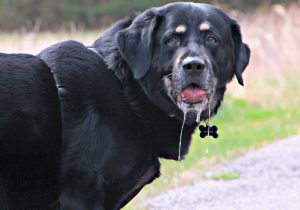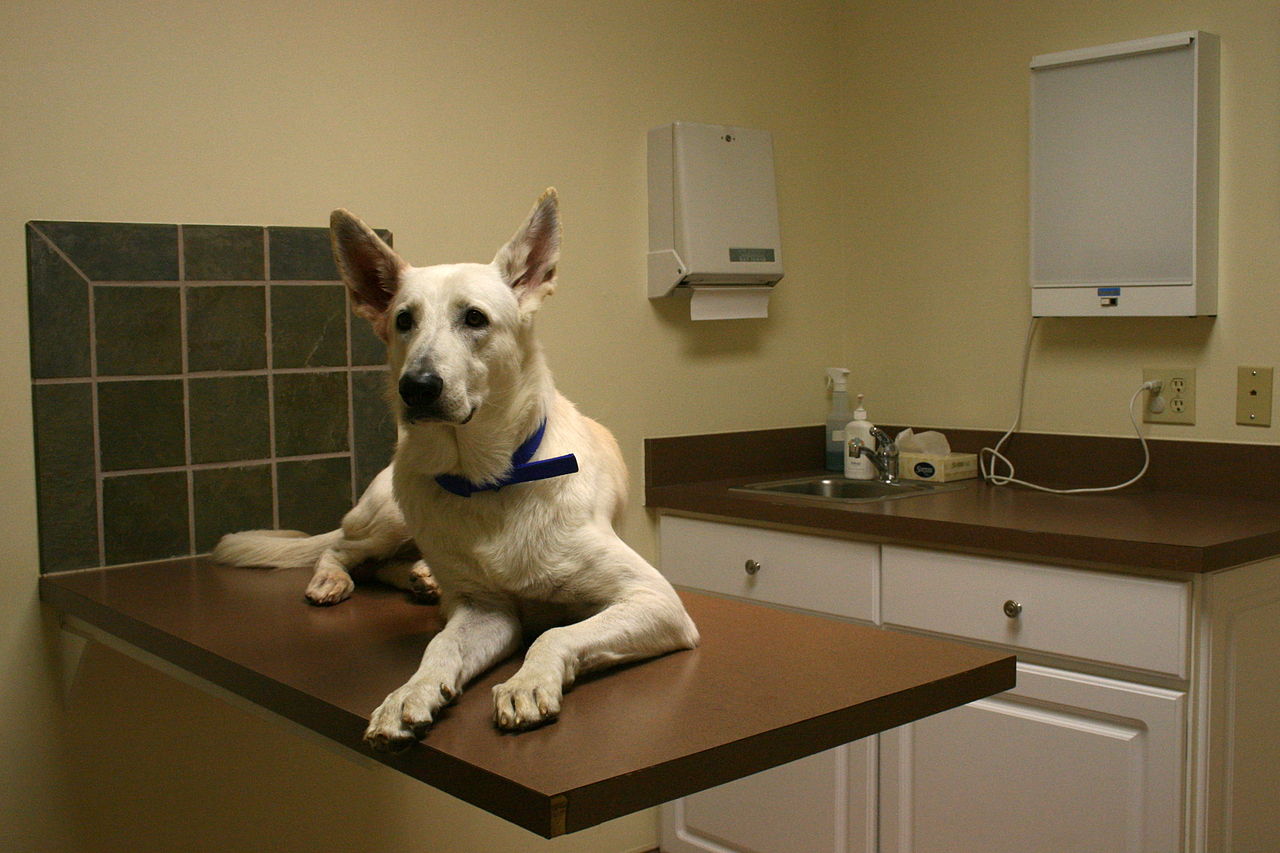Dog drool usually brings to mind one word – yuk!
Some breeds normally drool a lot – St. Bernards, Dogue de Bordeaux, Bloodhounds, Great Danes, Newfoundlands, Bullmastiffs, Boxers, Bulldogs. These dogs share a common bond, they have big, open lips. Their saliva settles in their cheek pouches and when they shake their heads, watch out. The drool flies and if you are nearby, some of it will land on you.
This is all part of having a dog. So just wipe his/her face and keep that towel handy for the next round.
Excessive Drooling:
 However, excessive drooling may be a sign lthat there’s a problem that needs attention.
However, excessive drooling may be a sign lthat there’s a problem that needs attention.
In summer excessive drooling can indicate heatstroke, an emergency that requires veterinary attention at once.
Other medical causes may be dental such as abscesses, gum disease, mouth irritation, a neurological which affects facial nerves. Excessive drooling may also indicate an oral tumor or even a blockage in the gastrointestinal tract.
Scientists at Penn State University and Monash University (Melbourne, Australia) have researched dog drool conducting a number of tests with their subjects. They’ve discovered that cortisol (the fight or flight hormone) in dog drool can indicate your dog’s level of stress.
One of the surprising findings in the tests was that dogs in animal shelters for more than 2 weeks had loweer levels of salivary cortisol than dogs living in family homes. Since shelter living is highly stressful, it was determined that these dogs response to stress had become impaired, probably due to living in those conditions.
Chronic stress and fear in dogs due to separation anxiety, storms, thunder and other loud noises, aggression and so on can place a dog at risk for physical and emotional disease and behavioral changes, all can affect the immune system.
If your dog suffers with chronic stress, you can help by avoiding stressful conditions, desensityzing to anxiety triggers, behavior modification. Please read our articles on how to relieve stress whether due to storms, separation anxiety, behavior problems.



